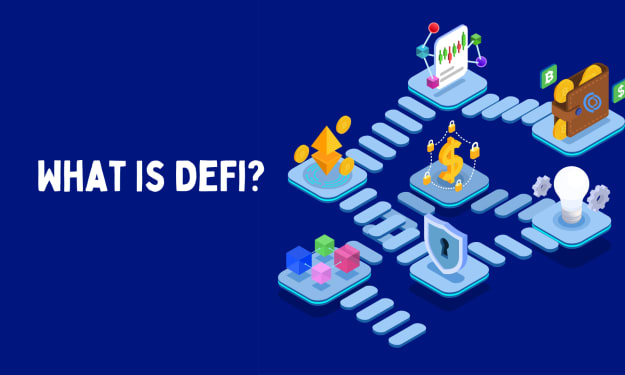BITCOIN IN THEORY AND PRACTICE
Bitcoin market

By and large, cash has taken various structures. A long way from being a solely financial device, cash is firmly connected with social and political frameworks in general - which Nigel Dodd alludes to as the public activity of cash. To be sure, cash has frequently been introduced as an instrument that can be utilized to deeply mold society in some ways and as Dodd has shown, this incorporates strong idealistic aspects: for social scientist Georg Simmel for example, an ideal social request pivoted upon the meaning of a "wonderful cash". Directly following financial emergencies, specifically, it is entirely expected to observe the rise of elective cash or trade systems pointed toward laying out various social relations between people - more populist, or less inclined to aggregation and hypothesis. Then again, be that as it may, goals of automatic business sectors have frequently looked to disconnect cash from existing social relations, bringing about a moderate "disembedding" of business collaborations from their social and social settin.
Since it originally showed up in 2009, the decentralized cryptographic money Bitcoin has raised high expectations for its capability to reshuffle the establishments of banking and money as well as for the most part influence relations inside society. The expected outcomes of this advancement, notwithstanding, are significantly irresolute. From one perspective, Bitcoin can be introduced as a neoliberal undertaking to the extent that it radicalizes Friedrich Hayek's and Milton Friedman's desire to end the restraining infrastructure of country states (through their national banks) on the creation and conveyance of cash or as a freedom supporter dream which targets diminishing the control of legislatures on the economy. Then again, it has likewise been outlined as an answer for more prominent civil rights, by subverting oligopolistic and hostile to popularity-based plans between enormous capital and states, which are believed to lean toward monetary emergencies and imbalances. Both of these cases rely on the way that as a socio-specialized gathering, Bitcoin appears to give an answer for "overseeing without legislatures", which requests liberal opinions both from the left and from the right. Its implied political task can in this manner be perceived as successfully disposing of governmental issues by depending on innovation.
All the more, for the most part, disseminated networks have for quite some time been related to a reallocation of force relations, because of the end of single marks of control. This was one of the primary understandings of the change in media communications directing strategies from circuit changing to parcel exchanging during the 1960s and the later sending of the web convention suite (TCP/IP) from the 1970s onwards as well as the reception of the start to finish guideline - which ended up being a convincing yet additionally halfway deceptive illustration. The thought was that data could move through numerous and unfiltered channels, subsequently bypassing any efforts to control or blue-penciling it, and giving a premise to additional populist social relations as well as more grounded protection. By and by, in any case, obviously network configuration is considerably more mind-boggling and that extra programming, conventions, and equipment, at different layers of the organization, could (and gave) substitute types of re-centralization and control and that, also, the web was not basically safe to different methods of mediation like regulation and guideline.
In any case, there have been various endeavors at re-decentralizing the organization, the majority of which have taken on shared models rather than client-server other options, with the fundamental supposition that such specialized arrangements give both individual opportunity and "a commitment of equity" 1. Different advances have likewise been embraced to add highlights connecting with client security for example, which include elective directing techniques and cryptography. Specifically, such thoughts were unequivocally upheld beginning from the last part of the 1980s by a casual aggregate of programmers, mathematicians, PC researchers, and activists known as cypherpunks, who considered solid cryptography to be a method for accomplishing more noteworthy protection and security in relational correspondences, particularly even with apparent overabundances and maltreatments with respect to legislative specialists. 2 For sure, these arrangements seek after understood or unequivocal objectives, as far as their social or political results, which can be summarized as empowering self-coordinated direct cooperations between people, without depending on an outsider for coordination, and furthermore forestalling any type of observation or compulsion.
However, cryptography isn't simply valuable to safeguard the protection of interchanges; it can likewise act as a way to advance further decentralization and disintermediation when joined with shared engineering. In 2008, a pseudonymous element named Satoshi Nakamoto delivered a white paper on the Cryptography Mailing list depicting the possibility of a decentralized installment framework depending on a disseminated record with cryptographic natives (Nakamoto, 2008a). After one year, the principal executive of the thoughts characterized in the white paper was delivered and the Bitcoin network was conceived. It presents its own local money (or unit of record) with a proper stock - and whose issuance is directed, just and only, by mechanical means. The Bitcoin organization can in this manner be utilized to supplant in any event a portion of the key capabilities played by national banks and other monetary establishments in present-day cultures: the issuance of cash from one perspective, and, then again, the guardian elements of banks and other unified clearing houses.
Upheld by numerous self-broadcasted freedom advocates, Bitcoin is in many cases introduced as an option money-related framework, fit for bypassing a large portion of the state-supported monetary organizations - with their weaknesses in general and personal stakes which have ended up being so clear in the illumination of the monetary emergency of 2008. Without a doubt, rather than customary concentrated economies, Bitcoin's financial stock isn't constrained by any focal power however is somewhat characterized (ahead of time) by the Bitcoin convention - which definitively specifies the aggregate sum of bitcoins that will at any point appear (21 million) and the rate at which they will be given over the long haul. By and large, like clockwork and relegated as a prize to the people who loan their computational assets to the Bitcoin network to both works and secure the organization. In this sense, Bitcoin can be said to emulate the attributes of gold. Similarly, as gold can't be made out of anywhere, yet rather should be separated from the earth (through mining), Bitcoin likewise requires a specific sort of computational exertion - otherwise called digging - for the organization convention to produce new bitcoins (and similarly as gold logically becomes more enthusiastically to find as the stock gets exhausted over, likewise how much bitcoins created through mining diminishes over the long run).
The foundation and support of cash have generally been viewed as a vital right of the State, as well as a focal establishment of majority rule social orders. Controlling the cash supply, by various means, is one of the primary instruments that can be utilized to shape the economy, both locally and with regard to worldwide exchange. However, whether or not one accepts that the State has the right (or obligation) to mediate to direct the market economy, money-related strategies have at times been instrumentalized by specific legislatures involving expansion as a way to back government spending (for example on account of the Argentine economic crisis of 1998-2002). Maybe the most basic is the way that, with the presentation of fragmentary hold banking, business banks procured the capacity to (for a brief time) increment the cash supply by giving out credits that are not upheld by genuine assets. 3 The partial hold banking framework (and the propensity of business banks to make cash at impractical rates) is accepted to be one of the primary variables prompting the worldwide monetary emergency of 2008 - which has brought the issue of private cash issuance back into the public discussion.
Despite the fact that there have been many efforts to lay out elective monetary standards, and digital currencies have likewise been bantered from here onward, indefinitely for quite a while, the production of the Bitcoin network was to a great extent propelled in light of the social and social possibilities that arose during the worldwide monetary emergency of 2008. As unequivocally expressed by Satoshi Nakamoto in different blog entries and discussions, Bitcoin is pointed toward destroying defilement from the domain of cash issuance and trade. Considering that states and national banks could at this point not be relied upon to get the worth of government-issued money and other monetary instruments, Bitcoin was intended to work as a trustless innovation, which just depends on maths and cryptography. 4 The mystery is that this trustless innovation is exactly the thing is required for building another type of "conveyed trust".
Trust the board is an exemplary issue in shared figuring, and can be perceived as the certainty that a friend needs to guarantee that it will be dealt with reasonably and safely while communicating with another companion, for instance, during exchanges or downloading documents, particularly by forestalling vindictive tasks and conspiracy plans. To resolve this issue, Bitcoin has brought two crucial developments, which, together, accommodate the self-manageability and self-supportability of the organization. The primary development is the blockchain, which depends on open confidential key encryption and hashing calculations to make a decentralized, add-just, and carefully designed data set. The subsequent development is Evidence of Work, a decentralized agreement convention utilizing cryptography and financial motivating forces to urge individuals to work and all the while securing the organization. Appropriately, the Bitcoin convention addresses a rich, yet simply specialized answer for the issue of social trust - which is regularly settled by depending on confided-in specialists and bringing together mediators. With the blockchain, to the degree that trust is designated to the innovation, people who don't have the foggiest idea (and hence don't be guaranteed to trust) one another, can now execute with each other on a shared premise, without the requirement for any go-between.
Consequently, Bitcoin utilizes cryptography not as a method for saving the mystery of exchanges, yet rather to make a trustless foundation for monetary exchanges. In this unique situation, cryptography is just utilized as a discrete notational framework intended to advance the independence of the framework, which can work free of any concentrated outsider 5. It depends on basic cryptographic natives or building blocks to determine, in a decentralized way, the twofold spending issue 6 tracked down in numerous virtual monetary standards. The plan utilized by Bitcoin (Evidence of Work) depends on a distributed organization of validators (or excavators) who commit their computational assets (hashing power) to the organization to record all legitimate exchanges into a decentralized public record (a.k.a. the blockchain) in sequential request. All legitimate exchanges are recorded into a block, which consolidates a reference (or hash) to the past block - so that any effort to mess with the request or the substance of any past exchange will constantly and essentially bring about clear brokenness in the chain of blocks.
By consolidating various existing advancements with fundamental cryptographic natives, Bitcoin has made a framework that is provably secure, essentially honest, and probabilistically unattackable 7 - this, without turning to any concentrated expert responsible for policing the organization. Bitcoin depends on a completely open and decentralized network, planned so that anybody is allowed to utilize the organization and add to it, without the requirement for any sort of past ID. However, in opposition to prevalent thinking, Bitcoin is neither mysterious nor security amicable. An incredible opposite, anybody with a duplicate of the blockchain can see the historical backdrop of all Bitcoin exchanges. The decentralized check requires, for sure, that each exchange be made accessible for approval to all hubs in the organization and that each exchange at any point finished on the Bitcoin organization can be followed back to its starting point. 8
In total, Bitcoin typifies in its very conventions a significantly market-driven way to deal with social coordination, started areas of strength for reasonable decision, and game-hypothetical standards of the non-collaboration guideline of the general framework are principally accomplished through a framework depending on wonderful data (the blockchain), joined with an agreement convention and motivating forces component (Proof-of-work), to oversee the commonly changing interests of every single included entertainer. Different elements of social trust and coordination (like faithfulness, compulsion, and so forth) are apparently erased from a framework that explicitly adjusts to Hayek's beliefs of the catallactic association.
If you like to get rich with bitcoin you can get access from
>>Here<<How To Get Rich With Bitcoin Even If You Have No Clue About Technology
Do you like to Reap Massive Crypto Profits?
About the Creator
Sithum Chathumina
I am an experienced cryptocurrency trader and I am an expert in trading






Comments
There are no comments for this story
Be the first to respond and start the conversation.